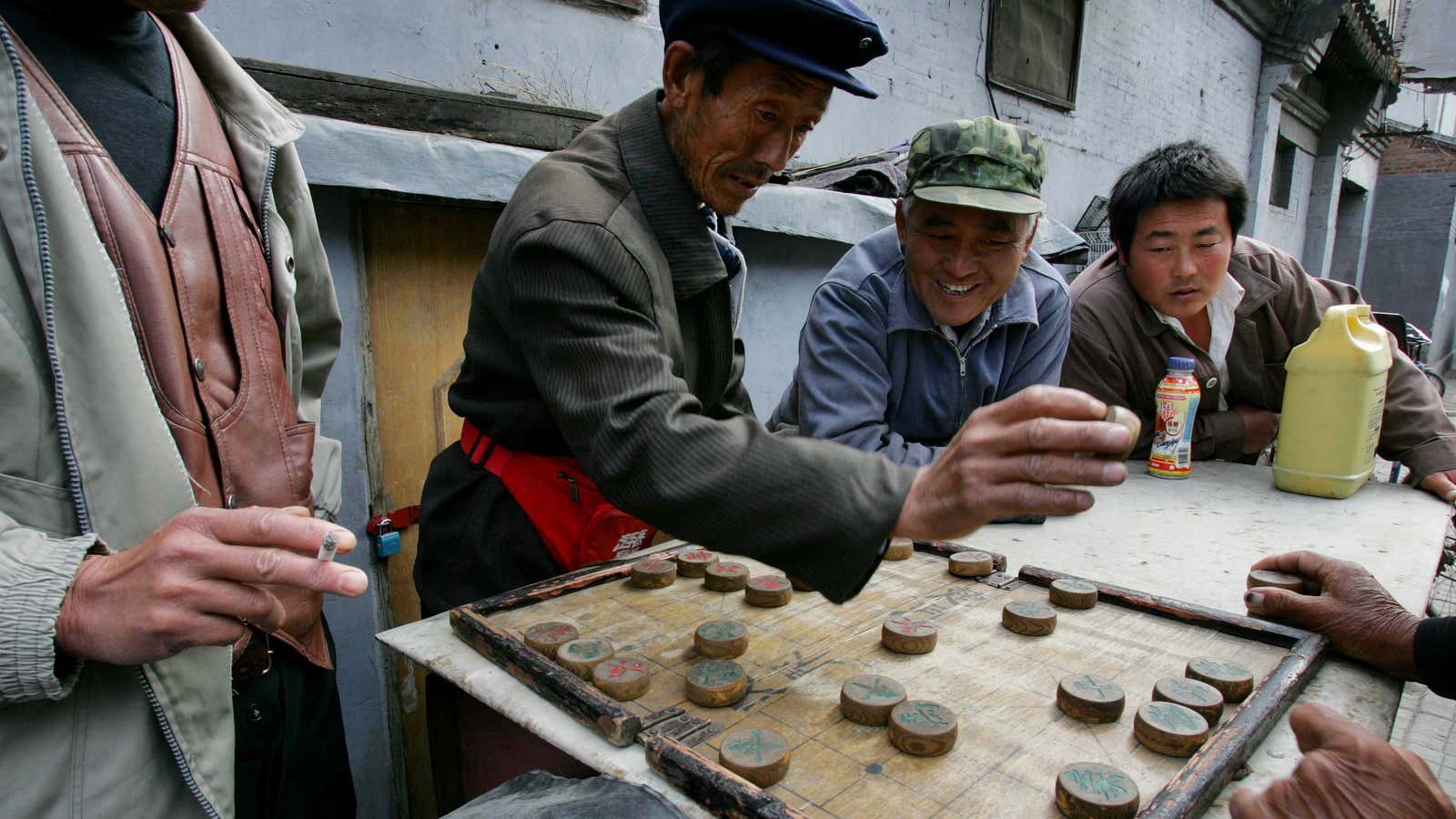Since last year in China, people have been retiring faster new workers are entering the workforce. Fourteen percent of the population is now at least 60 years old, and at this pace, China’s total population will start to decline in 2030.
And now even some of those retirees are contributing to population loss, increasingly spending their twilight years in Thailand, Malaysia and the Philippines, according to a recent report in China’s state-run Global Times (GT). Thailand is already a big favorite among Chinese people; it was China’s fourth most-popular tourist destination in 2012, while Malaysia and the Philippines came in at #10 and #20, respectively.
It’s not just the dream of playing mahjong under the palm fronds that’s attracting older Chinese people. Though the GT report is light on exodus data, the reasons it cites aren’t surprising: quality of life and cost of living.
Quality of life may be a euphemism for breathing easy. China’s pollution is already an oft-cited reason for emigration. Not only does it make life dreary, but the air can shave years off your life.
Southeast Asia is pristine compared to China. Plus, Thailand’s health care system is famed for the quality (and affordability) of care. And though elderly Chinese would normally turn to their children for support, one upshot of the one-child policy is that it places the burden of care for aging parents on a single child, leaving many elderly without the care they need.
Then there’s rising living costs. Beijing, for example, is way more expensive than, say, Chiang Mai. That factor is increasingly important given the shaky state of China’s pension system. In addition, emigrating allows retirees to invest in overseas stock and bonds, which is exceptionally hard for Chinese residents.
But doesn’t Thailand already have too many old people? Yes. (It’s a more distant worry for the Philippines and Malaysia.)
Another country’s elderly aren’t the same as your own, though. Old people become an economic drag when there aren’t enough workers to support the pensions and state benefits drawn by elderly. Assuming Chinese retirees claim fewer social welfare benefits in their adopted country, the taxes they pay would actually help Thailand. On top of that, they spend on things like housing, medical care and domestic workers—labor intensive jobs that keep an economy growing.
Southeast Asian countries appear wise to this. Thailand already offers renewable, one-year retirement visas. A Malaysian program welcomes applicants over the age of 50 who have at least $45,000 in a local bank. The Philippines, meanwhile, has already attracted more than 21,000 retirees, mostly from China, Japan, and South Korea, says the GT.
Losing old folks is bad for China, though. Even though unused medical care costs offset its pension obligations, it’s missing out on the consumption boost of retirees spending down their wealth. And by the looks of it, this trend is only just beginning. China’s economy only truly took off around 2000; those currently planning retirement only had around 15 years to amass their wealth. That means the upfront cost of picking up and resettling overseas is still probably prohibitive to many—for now.
